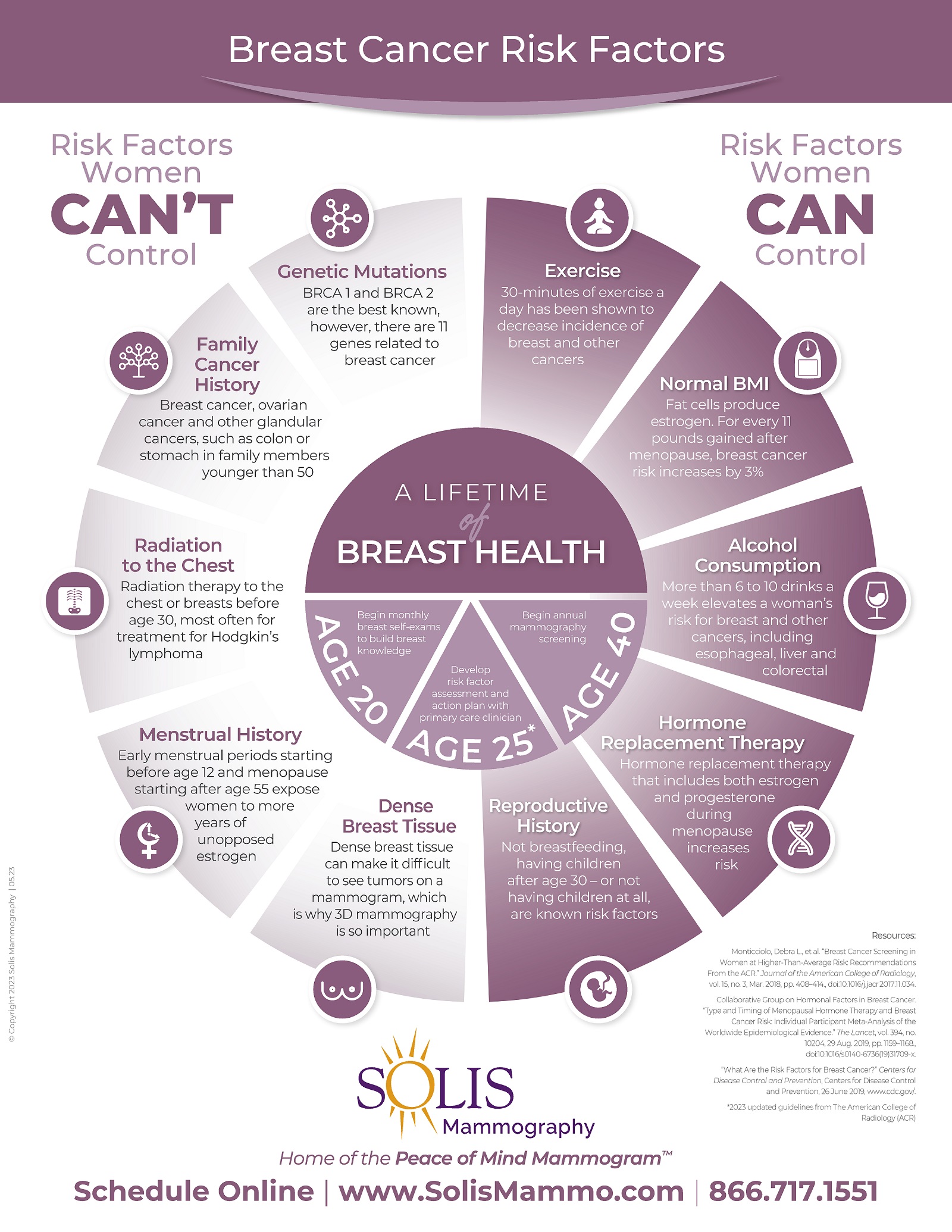Risk Factors for Breast Cancer
Understanding personal risk factors for breast cancer can help you and your physician make informed health decisions. Did you know that there are risk factors that you can and cannot control? Scroll down to view our breast cancer risk factors infographic.
Risk Factors Women Can't Control
Genetic Mutations
BRCA 1 and BRCA 2 are the best known, however, there are 11 genes related to breast cancer.
Family Cancer History
Breast cancer, ovarian cancer and other glandular cancers, such as colon or stomach in family members younger than 50.
Radiation to the Chest
Radiation therapy to the chest or breasts before age 30, most often for treatment for Hodgkin's lymphoma.
Menstrual History
Early menstrual periods starting before age 12 and menopause starting after age 55 expose women to more years of unopposed estrogen.
Dense Breast Tissue
Dense breast tissue can make it difficult to see tumors on a mammogram, which is why 3D mammography is so important.
Risk Factors Women Can Control
Exercise
30-minutes of exercise a day has been shown to decrease incidence of breast and other cancers.
Normal BMI
Fat cells produce estrogen. For every 11 pounds gained after menopause, breast cancer risk increases by 3%.
Alcohol Consumption
More than 6 to 10 drinks a week elevates a woman's risk for breast and other cancers, including esophageal, liver and colorectal.
Hormone Replacement Therapy
Hormone replacement therapy that includes both estrogen and progesterone during menopause increases risk.
Reproductive History
Not breastfeeding, having children after age 30 - or not having children at all, are known risk factors.
A Lifetime of Breast Health
- Age 20 - Begin monthly breast self-exams to build breast knowledge
- Age 25 - Develop risk factor assessment and action plan with primary care clinician
- Age 40 - Begin annual mammography screening
